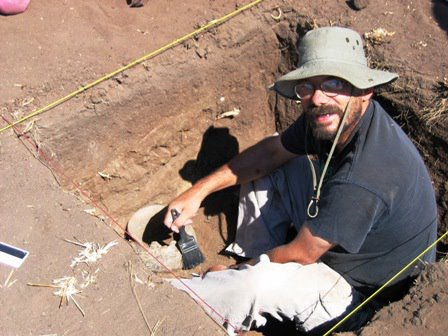Creationist Ken Ham minces no words about his belief in the Bible as a source of historical information, including the idea that the earth is no more than 6000 years old. Neither does the Reverend Byron E. Shafer of Rutgers Presbyterian Church in Manhattan regarding theology and science:
"I believe that instead of suppressing or falsifying science, we people of faith need to go back to the theological drawing board in order to rethink our existing theology in the light of new data -- just as Martin Luther and John Calvin did nearly five centuries ago"
Ken Ham, Carl Baugh, Philip Johnson and other creationists have spent so much time and energy covering up true science that they have never contemplated the possibility that is not science, but their interpretation of theology that is flawed. In the aftermath of Evolution Sunday I saw this in the New York Times:
At St. Dunstan's Episcopal Church, a small contemporary structure among the pricey homes of north Atlanta, the Rev. Patricia Templeton told the 85 worshipers gathered yesterday, "A faith that requires you to close your mind in order to believe is not much of a faith at all."
In the same article, the Reverend Mitchell Brown, of the Evanston, Illinois Mennonite Church had this to say:
...that Darwin's theories in fact had compelled people to have faith rather than look for "special effects" to confirm the existence of God.
"He forced religion to grow up, to become, really, faith for the first time," Mr. Brown said. "The life of community, that is where we know God today."
Fundamentalists (including Catholic ones) want a dichotomy between evolution and religion - if you buy into evolution as an explanation, you're either an atheist or accept a poor theology. But there is another possibility, one that is largely unstated in the public sphere, but with Evolution Sunday and other efforts is getting more play in the media: that fundamentalism is itself based on poor theology and the wrong path for finding God. Ham, Baugh, Johnson and others who accept such views need the "special effects" in order to have faith. It's poor science, but more than that, it's very poor theology. This is a primitive kind of religion, one that requires its audience to be uninquisitive and ideological. No wonder Ham preys upon children with his sermons - it is the perfect audience on which the slap the shackles of ignorance. Instead of opening minds to possibilities, he encloses them with a straightjacket, so that his faith may find safety in numbers.
Sunday, February 12, 2006
Subscribe to:
Post Comments (Atom)




1 comment:
Very nice site! Big breast women cartoons luis vuitton baseball hats incorporate in online co Fire football cheerleaders College baseball superstitions rubbing the cap Good for your back shoulder bag 25quitting smoking zyban
Post a Comment